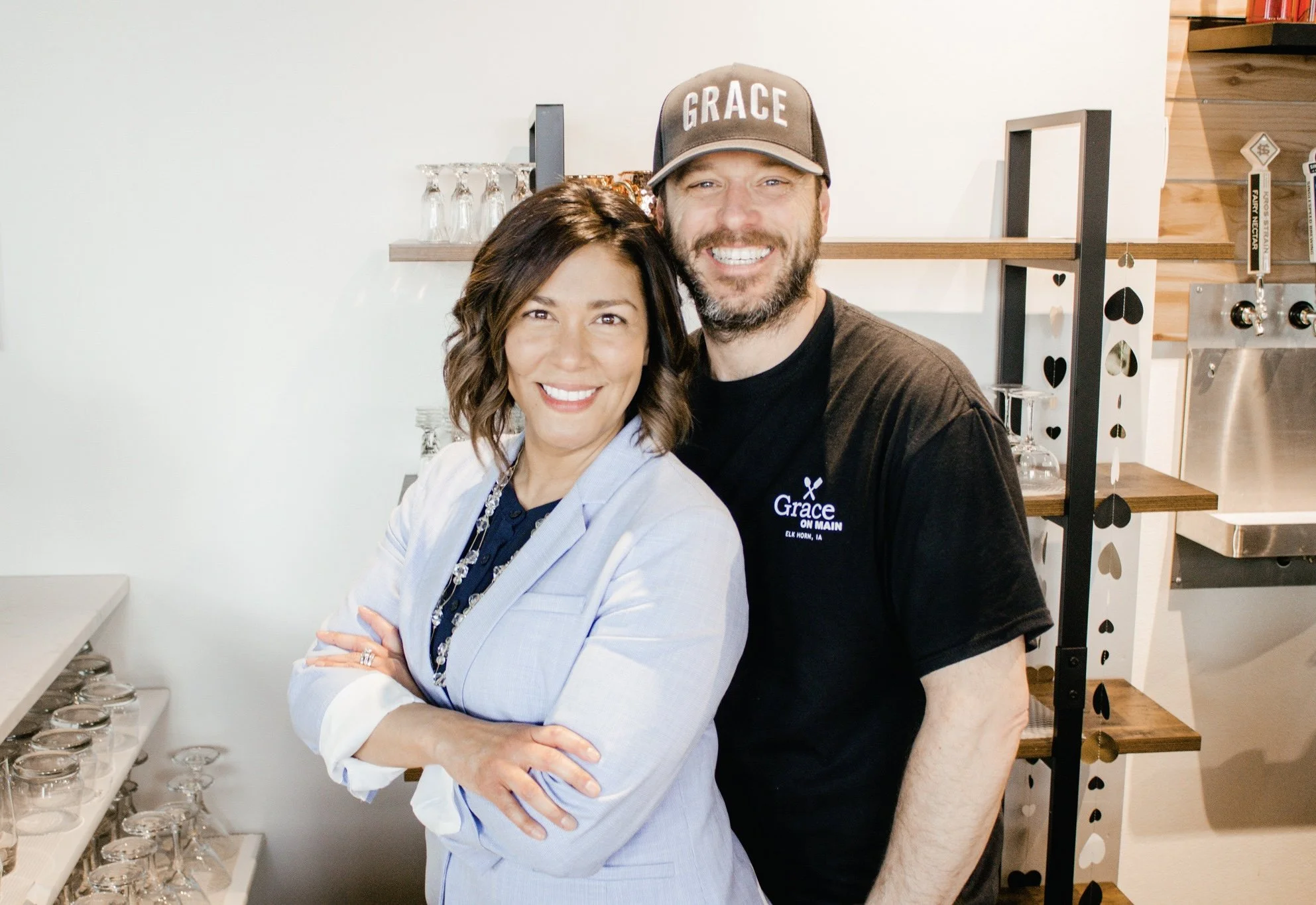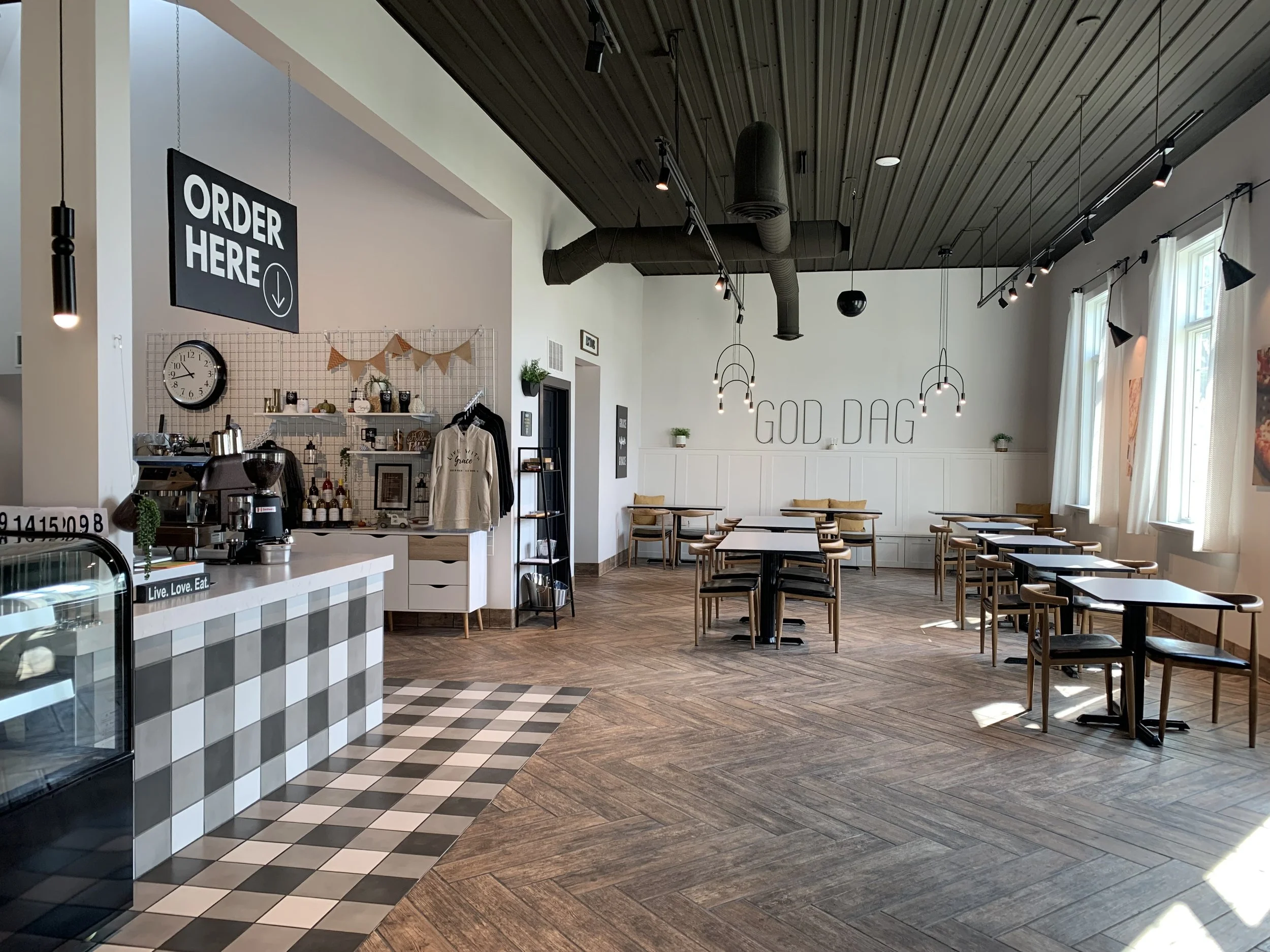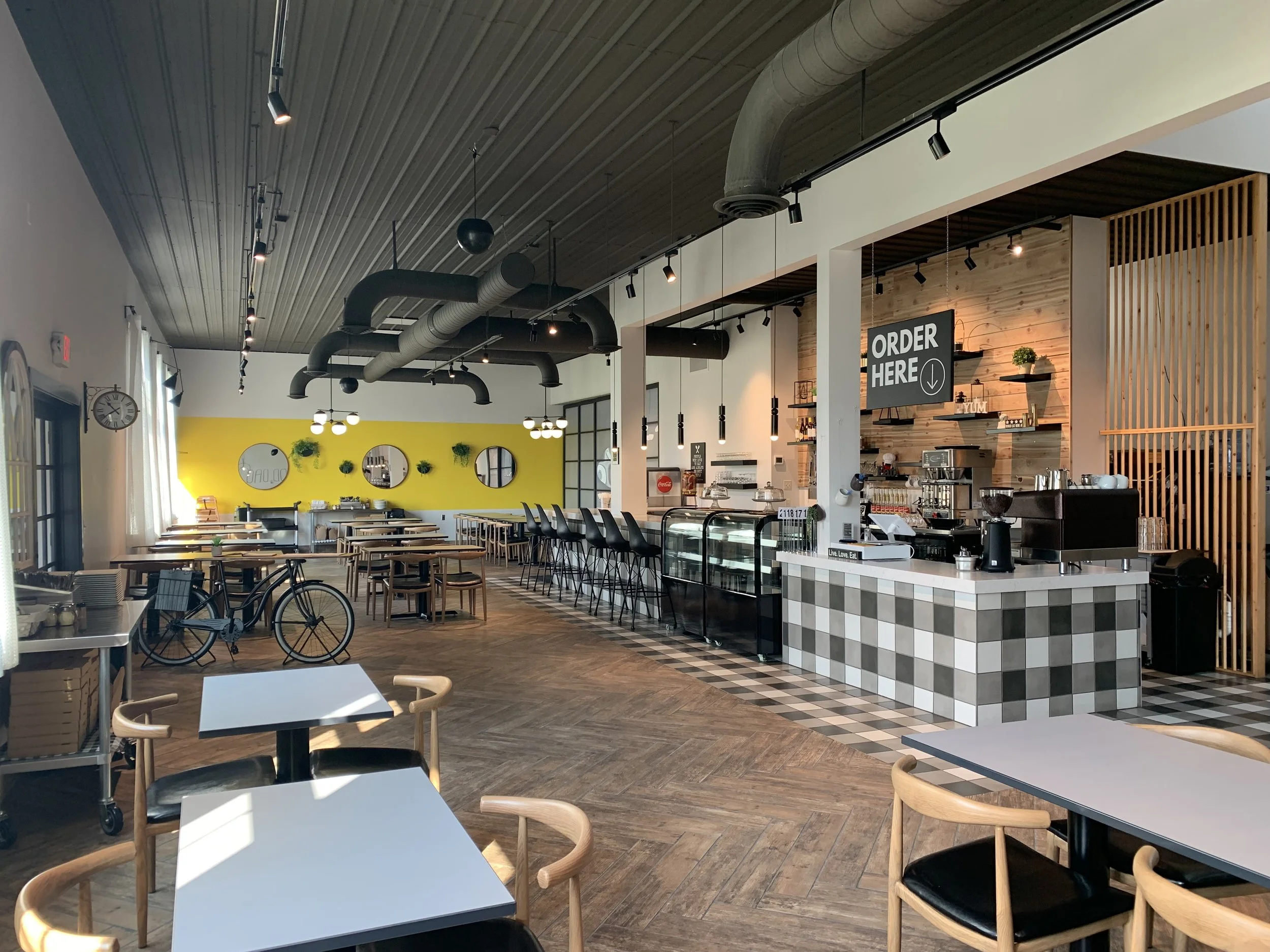Ilee and Mike Muller, owners of Grace on Main in Elk Horn. Submitted photo
Creating an eco-friendly industry
How one restaurant evolved for sustainability
by Hailey Allen
Mike and Ilee Muller, owners of Grace on Main in Elk Horn, received the Iowa Restaurant Association’s first Sustainability & Innovation Award in 2022. The new award recognizes Iowa restaurants for their leadership commitment to sustainable practices and protecting the environment.
Sustainability in the restaurant industry can be a tricky thing to discuss. The nature of the industry is consumption, and there is always inevitable waste whether in the form of uneaten food or single-use plastic to-go containers. But through innovation and investment, it’s possible that this doesn’t have to be the restaurant industry’s standard operating procedure.
As the inaugural winners, the Mullers have set the stage and opened a conversation about what sustainability can look like for restaurants. And they’ve left big shoes to fill — Grace on Main is currently powered by 88.5% renewable energy.
Grace on Main
In 2019, the Mullers both left their government jobs, packed up their family, and made the trek from Sacramento, Calif., to Elk Horn.
Ilee already knows your first question: Why?
“For lack of a better term, we were tired of the rat race. It was busy, busy, busy, always on the go, and we really just wanted to slow down,” Ilee said. Friends of the couple had recently made the exodus from California to Iowa, and after the Mullers visited their friends’ new Midwest living situation, “we just fell in love with the wide-open, rural community. It was slower, people were nicer,” Ilee said.
The Mullers and their two daughters settled on an acreage outside of Elk Horn in November 2019. They found the sense of community and quality of life they had been missing in the town of 596 people. By January 2020, through the small-town connections and hospitality, Mike learned of a restaurant in town going up for sale. He has a background in the restaurant industry and a passion for cooking, so the couple decided to take the chance and open their own restaurant on the property. They opened Grace on Main, an Italian-inspired lunch and dinner spot serving pizzas, pastas and sandwiches, on March 18, 2020. “Right after the governor shut everything down,” Ilee said.
Despite the unlucky timing of the opening, the Mullers found ways to help the restaurant thrive during the mandated dining room closures. They served to-go pizzas through a window until restrictions were eased, and seated patrons 6 feet apart in the small, 36-seat dining room for several months. When the restaurant was able to open fully, all 36 seats were spoken for. With hourslong waits and no signs of their popularity slowing, the Mullers expanded to a bigger space, the restaurant’s current location at 2105 Broadway Ave.
The fresh, farmhouse-style interior of Grace on Main is powered by 88.5% renewable energy thanks to geothermal heating and solar panels on the roof. Submitted photos
Pivoting leads to innovation
The building they moved to had been outfitted by the previous owner, Mike Howard, with solar panels on the roof and geothermal heating. “We cannot take credit for the building we were blessed to take on. That was Mike Howard’s forward thinking, and he’s a huge proponent for renewable energy. But when we were thinking of moving, that was something that drew us to this building,” Ilee said. In fact, she credits the restaurant’s growth and continued success to the use of renewable energy.
“If we didn’t have that renewable energy component of it, we would not have been able to make that move and expand, because there is quite a significant cost savings in creating our own energy,” Ilee said.
Coming from Sacramento, a place with a very environmentally conscious culture that’s largely committed to recycling and reducing carbon footprints, the Mullers naturally continued to incorporate those beliefs into their lifestyle in Elk Horn. Even as they were running a busy restaurant, “we always separated our plastic out and our green waste out. Having chickens [on their acreage] was a great way to dispose of our greens,” Ilee said.
Eventually, as the restaurant waste began to outpace their chickens’ eating habits, they turned to another eco-friendly solution: composting. Ilee connected with Craig Keiser of Windy Hill Compost and began collecting restaurant scraps in large bins outside the building. The bins have become a community drop-off site for others to begin composting their waste as well.
“We feel we have to do our part, and we want to help,” Ilee said.
Green restaurants
The community of Elk Horn has been supportive of Grace on Main and the Mullers’ sustainability mission. But for restaurants in bigger cities with more waste, and owners who don’t have chickens to feed scraps to, sustainability might feel out of reach.
Making the effort to separate plastic waste, eliminate plastic foam and use recyclable or reusable to-go packaging can be an effective place to start. Restaurants produce a lot of waste that is easily compostable as well, especially if the establishment creates its meals from scratch. All those veggie scraps, eggshells and even coffee grounds can make much better compost than landfill waste. Ilee praised Keiser’s work at Windy Hill Compost as a great asset to their community, and said creating a similar composting system that benefits the greater community is possible.
“I think there’s always a way. I think you have to be resourceful. If you have the drive and the interest to reduce your carbon footprint and to give back to your community, there are ways. You can work with your community to create that,” she said.
Mike and Ilee are considering starting a greenhouse to grow some of their own food items and further reduce their carbon output spent on the transport of fresh ingredients. Many restaurants have begun sourcing ingredients locally, especially here in Iowa, where places like HoQ and Harbinger in Des Moines can find meat, herbs, vegetables and more from farmers nearby.
Receiving a sustainability award from the Iowa Restaurant Association gives the Mullers hope for the future of restaurants, and shows the industry is moving in the right direction. It can be an environmentally conscious industry, and restaurants can use responsible business practices to reduce their waste. “It’s an investment that’s truly beneficial. If you have the funds and the capability to [install renewable energy sources], do it. If you don’t, start small. Then you eventually get to those big things,” Ilee said.



